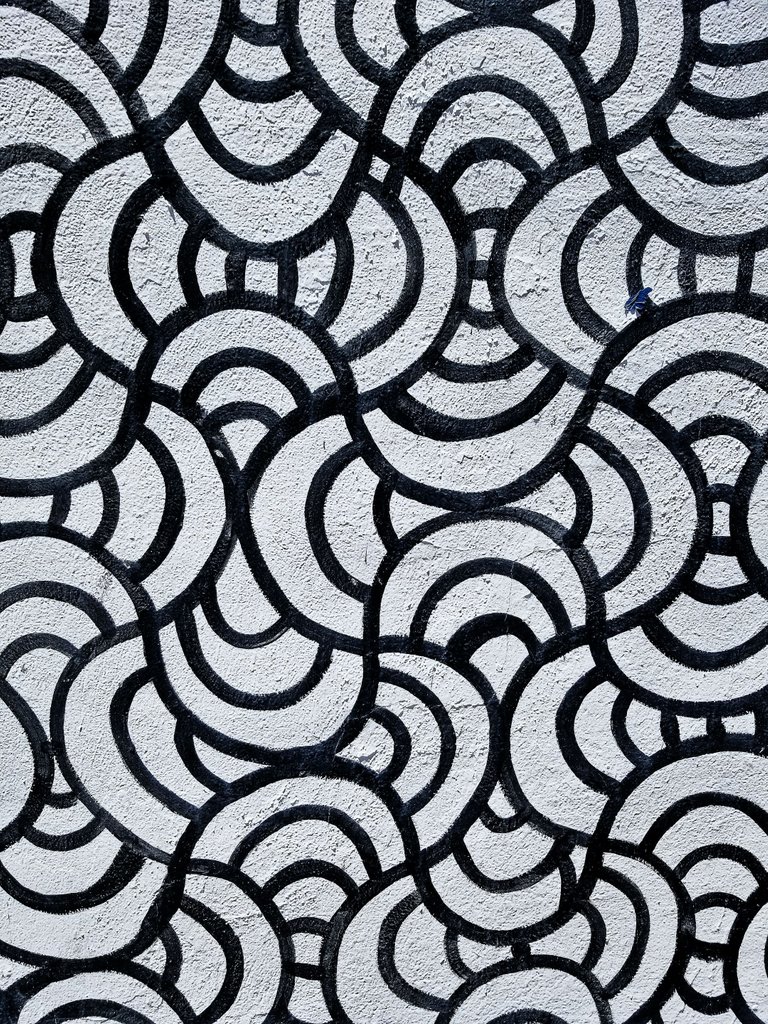One time I read somewhere that it takes 21 days for a habit to form. I have checked to see whose study this can be traced back to and I found an article that credits it to a Dr. Maxwell Maltz’s 1960 book,on Psycho-Cybernetics. Like all research, there are people who discredit the research and say that the number of days is inaccurate or go outright to call it a myth. I've lived long enough to know that for there is no universally agreed upon research result. However, I have found that 21 days works for me when it comes to things I wish to learn.
I made this point because what I do want to talk about are patterns; good and bad and just how we act upon the deduction we've made from these patterns. Like a Pavlovian response to things, we have behaviours that are now knee jerk and impulse motivated because we've had several experiences that have caused us to form a pattern of action and reward or consequence because of them. These things influence who we become, how we react and become our very nature, something people can characterize us by and something we ourselves describe us as being. Statements like 'You know if it were me in that situation, I would...' would now be said with confidence because there is proof to back that up.

Photo by George Pagan III on Unsplash
Not all patterns are to our benefits, I've realized. Some patterns develop into things that end up becoming trauma responses, negative habits and 'baggages' as they are called when they affect our interaction with people. For me, I have identified patterns that set me on edge. For example, my experience with a certain person in the past made me anticipate a request for money or help in any other form whenever she called. Even if she prefaced the call with some polite concern for me, I knew that that was not the sole reason for calling. It made me develop a pattern and to see a ring from her as insincere and an anxiety inducing event because I was also dealing with my problems and she always needed help 'ASAP'.
The bad thing about patterns that reinforce a negative response in us is that they are not limited to the people or events that caused them in the first place. We are capable of transferring our learned responses to other people who may be innocent in this case and viewing them suspiciously. For example, if you have no good memories of putting your pictures up with an ex on social media without a fight happening which forced you to always (with no exception) delete those pictures on a later date because they asked you to, you will find it difficult to want to use or be in pictures in general or want to share another person's photo because at the back of your mind you'll be wondering what embarrassment a potential fight could bring. You could even go as far as to imagine how such a person could ruin memories of your wedding day if a fight ever revolved around them and how they could force you to delete such pictures even when family and friends have seen and praised you in them.
A pattern of starting a friendship with someone new and watching it wane after a few excited chats can make you pull away from people who exhibit similar levels of enthusiasm. You would tell yourself that you can firmly predict the fizzling of said enthusiasm because it has happened several times already. Granted, there might be some truth in this but if a pattern causes you not to even try, you might miss out on a friendship that would not have fizzled out if you'd continued with the effort.
By consistently painting each day and coding(when I used to do this for more than 100 days at a time), you can build new pathways in your brain and form a habit. I have become a better artist for sure because the urge to paint is so strong even on days when I beg myself to take a break. It has become a force for the refining of my talents. So you see, a pattern does not have to be bad or good. It is a neutral thing. It is what consists of the pattern, what characterizes it's nature and structure that has the potential to harm or help us. So I think it is worth considering what patterns exists in our minds and work through them to ensure we have only patterns that assist us.
And just like I began in the beginning of this article, I think that teaching ourselves to relearn good habits can take 21 days. I'm not putting this out as a completely scientific number of days, but it has worked for me. In conclusion, I would say the longer you do something, the easier it would be to keep doing it.
I'm happy to read your thoughts and comments, so feel free to share what patterns you are aware of in your life and how you're working to create new ones.
All content is mine unless stated otherwise
Habits do indeed become ingrained, for good or bad, and there's no better way to replace a bad habit with a new one than repeating the new one day after day. The trouble is, it takes a lot of effort and we're all pretty lazy animals at heart 🙂
Wonderful post..